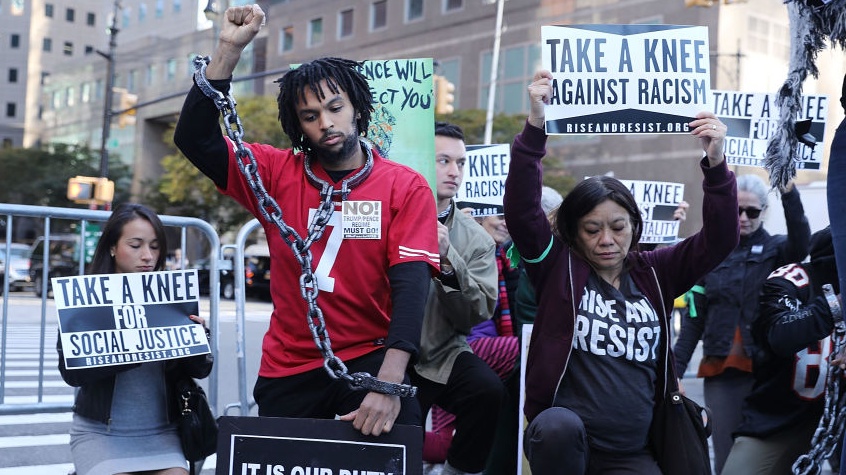Olympic athletes will not be allowed to participate in any political protests of any kind while competing in the 2020 Tokyo Games.
The guidelines, known as Rule 50, were published Thursday by the International Olympic Committee (IOC) and did not specify an exact punishment for the actions, only saying "disciplinary action will be taken on a case-by-case basis.”
“We believe that the example we set by competing with the world’s best while living in harmony in the Olympic Village is a uniquely positive message to send to an increasingly divided world,” the IOC said in a statement. “This is why it is important, on both a personal and a global level, that we keep the venues, the Olympic Village and the podium neutral and free from any form of political, religious or ethnic demonstrations.”
The rule comes as political protests by American athletes have become a hot button issue, with former San Francisco 49ers quarterback Colin Kaepernick being barred from the NFL after kneeling during the national anthem in 2016.
Feyisa Lilesa, an Ethiopian marathoner, crossed his wrists at the finish line during the 2016 games in solidarity with protest movements taking place in his home country.
The Olympic stage has long been used for political protests. During the medal ceremony of the 1968 games, American sprinters Tommie Smith and John Carlos both raised their fists in homage to the ongoing civil rights movement.
“We needed clarity and they wanted clarity on the rules,” Kirsty Coventry, chairperson of the IOC Athletes Commission, said to the New York Post. “The majority of athletes feel it is very important that we respect each other as athletes.”
With the rule in place, it is still unknown if athletes will follow the precaution or what the punishment will be if they decide to take a stand anyway.
